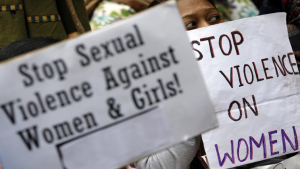As the world commemorates International Women’s Day on Sunday, governments have been challenged to ensure gender equality and end gender-based violence.
This year’s theme is: “I am Generation Equality”. It is aligned with United Nation (UN) Women’s new multi-generational campaign, which marks the 25th anniversary of the Beijing Declaration and Platform for Action, where heads of state committed to ensuring gender equality in their countries.
“It’s six key areas that are still lagging behind, gender-based violence is one, economic justice and rights is the second one, leadership and feminist movements, climate justice, bodily autonomy and sexual and reproductive rights, technology and innovation. These are areas that are outstanding, along with the social norms and stereotypes otherwise known as patriarchy, which holds us back all the time in every institution. We expect dramatic and accelerated change,” says Head of UN Women in South Africa Anne Shongwe.
In the video below is a report on UN Women’s progress towards gender equality:
President Cyril Ramaphosa has on the other hand called on women to never tire from talking about the challenges they face everyday.
The President says the South African government will continue to empower women.
On this video below, President Ramaphosa says women add value to South African economy:
Bid to improve coverage of Black women activists
Meanwhile, more than 300 women journalists from the continent’s 54 countries gathered in Casablanca, Morocco, for the Pan African Women’s Journalist Forum.
The meeting discussed ways to improve reporting on the coverage of Black and African environmental activism. This was sparked by the widespread outcry over the cropping out of Ugandan climate activist Vanessa Nakate from a photograph in which she was posing with her European counterparts during the World Economic Forum (WEF) in Davos, Switzerland, in January.
Nakate had raised concern over the perceived stifling of African voices on the global stage.






